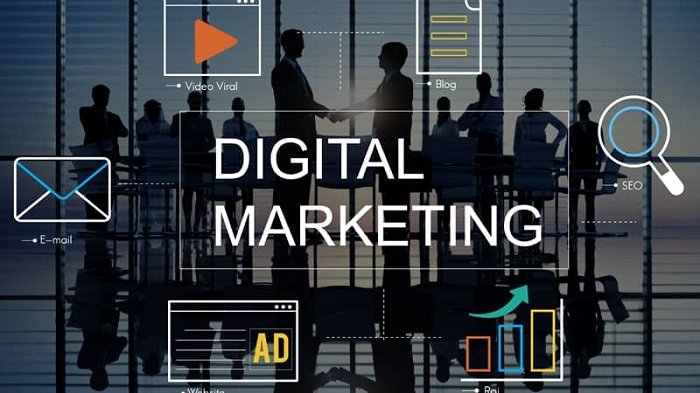In the ever-evolving realm of business, marketing stands as the compass guiding organizations toward their audience and success.
This blog post explores the dynamic landscape of marketing, unraveling key strategies, emerging trends, and the transformative power of effective marketing in the digital age.
Understanding Marketing:
Marketing is the strategic process of creating, communicating, delivering, and exchanging offerings that have value for customers, clients, partners, and society at large. It encompasses a broad spectrum of activities aimed at promoting products, services, or brands to reach and resonate with target audiences.
Beyond Finance Lawsuit: What You Need to Know
Key Components of Modern Marketing:
Digital Presence:
A robust online presence is fundamental in the digital age. This includes a well-designed website, engaging social media profiles, and effective use of digital marketing channels like email marketing, search engine optimization (SEO), and content marketing.
Customer-Centric Approach:
Successful marketing revolves around understanding and catering to the needs and preferences of the target audience. Building and maintaining customer relationships is essential for long-term success.
Data-Driven Decision-Making:
Data analytics and insights play a crucial role in modern marketing. Analyzing consumer behavior, tracking campaign performance, and adapting strategies based on data-driven insights contribute to effective decision-making.
Content is King:
Quality content serves as the cornerstone of digital marketing. From blog posts and videos to social media updates, compelling and relevant content attracts, engages, and retains the attention of the target audience.
Key Marketing Strategies:
Social Media Marketing:
Leveraging platforms like Facebook, Instagram, Twitter, and LinkedIn, social media marketing allows businesses to connect with their audience, build brand awareness, and drive engagement.
Influencer Marketing:
Collaborating with influencers who have a significant following in a particular niche can amplify brand visibility and credibility. Influencers can authentically promote products or services to their engaged audience.
Search Engine Optimization (SEO):
Optimizing online content for search engines enhances visibility and organic traffic. Strategic use of keywords, high-quality content, and a user-friendly website contribute to improved search engine rankings.
Email Marketing:
Email marketing remains a powerful tool for direct communication with an audience. Personalized and targeted email campaigns can nurture leads, drive conversions, and maintain customer relationships.
Video Marketing:
The rise of video content across platforms like YouTube, TikTok, and Instagram has made video marketing a key strategy. Engaging and visually appealing videos can convey messages effectively and connect with diverse audiences.
Emerging Trends in Marketing:
Artificial Intelligence (AI) Integration:
AI is revolutionizing marketing by enabling personalized experiences, predictive analytics, and automation. Chatbots, recommendation engines, and AI-driven analytics enhance efficiency and effectiveness.
Interactive Content:
Interactive content, such as quizzes, polls, and augmented reality experiences, captivates audiences and encourages active participation. This trend fosters engagement and boosts brand interaction.
Voice Search Optimization:
With the increasing prevalence of voice-activated devices, optimizing content for voice search is gaining importance. Marketers need to adapt strategies to accommodate the nuances of voice-based queries.
Sustainability and Social Responsibility:
Consumers are increasingly drawn to brands that demonstrate a commitment to sustainability and social responsibility. Marketing strategies that highlight ethical practices and environmental consciousness resonate well with socially conscious audiences.
Challenges and Considerations:
Information Overload:
The digital landscape is saturated with content, making it challenging for brands to cut through the noise. Crafting unique, valuable, and memorable content is essential to capture audience attention.
Adapting to Technological Shifts:
Rapid technological advancements require marketers to stay agile and adapt to new tools, platforms, and trends. Embracing innovation is crucial to staying competitive in the ever-changing marketing landscape.
Data Privacy Concerns:
Heightened awareness of data privacy has led to increased scrutiny. Marketers need to navigate privacy regulations and ensure transparent and ethical handling of customer data.
Globalization and Cultural Sensitivity:
Operating in a global market demands cultural sensitivity. Marketers must understand diverse cultural nuances to avoid unintentional missteps in messaging and branding.
Conclusion:
Marketing, in its multifaceted and dynamic nature, remains an essential force driving business growth and brand success. The convergence of digital technologies, data-driven insights, and customer-centric approaches has reshaped the marketing landscape.
As organizations navigate the complexities of modern marketing, the ability to adapt to emerging trends, embrace innovation, and foster meaningful connections with their audience will determine their success in the ever-evolving world of business.


